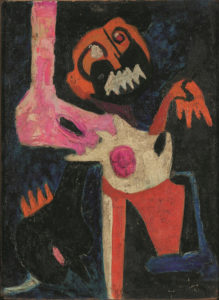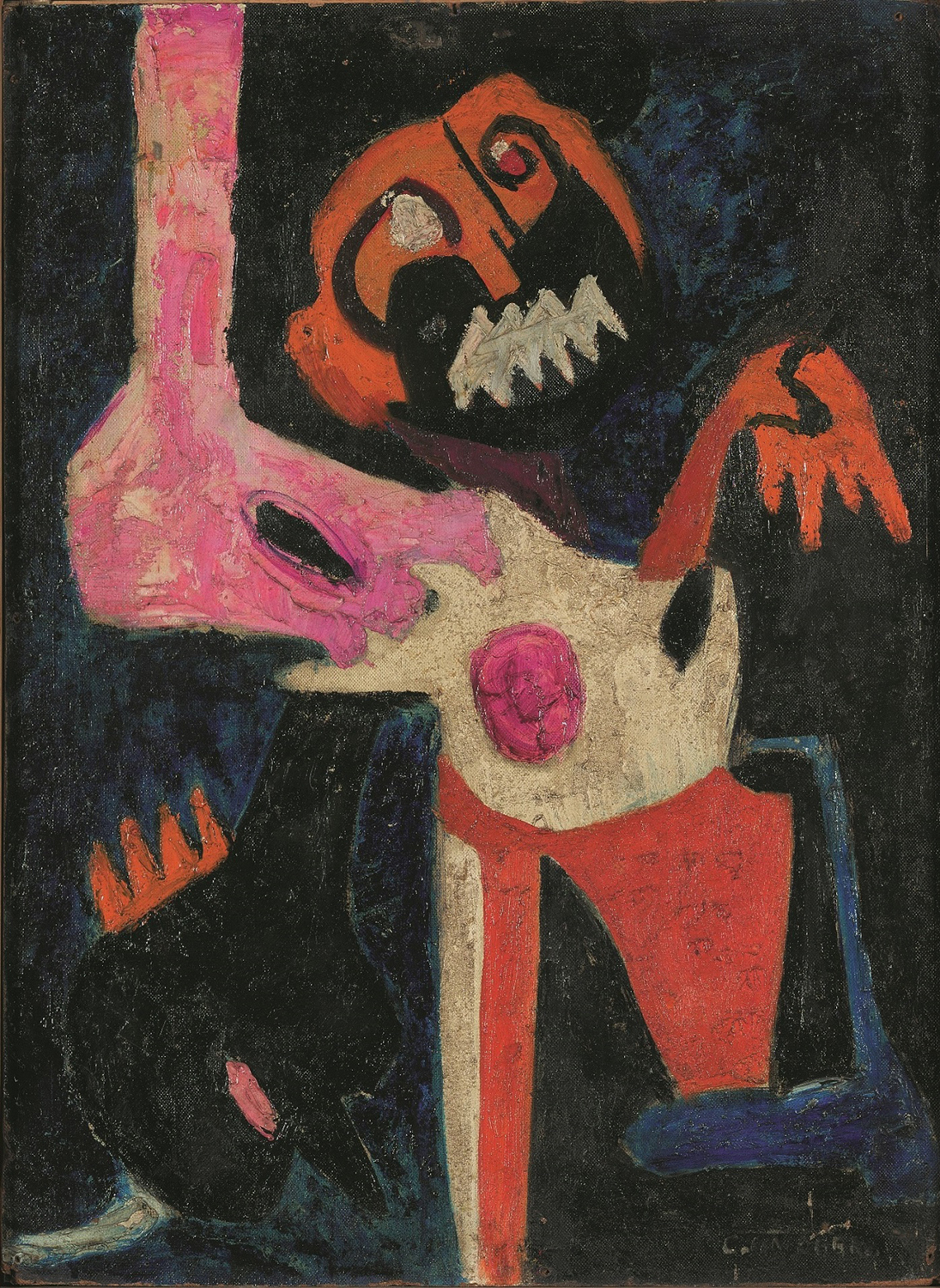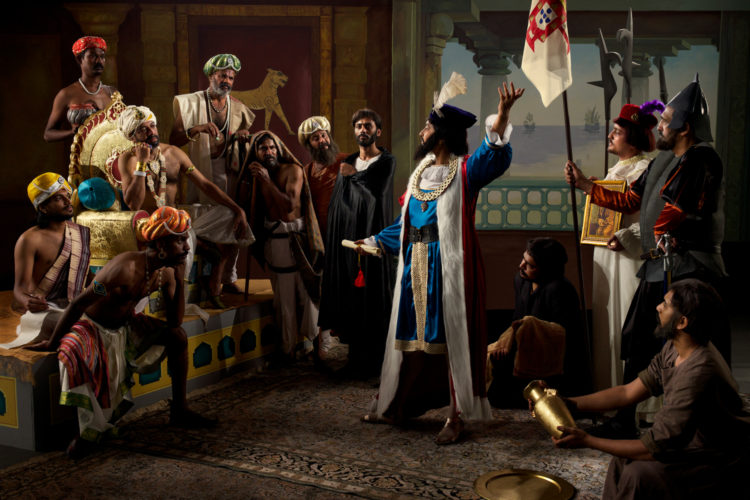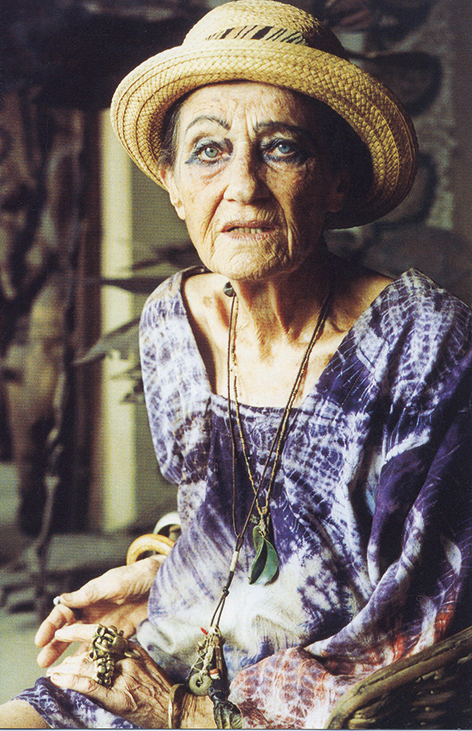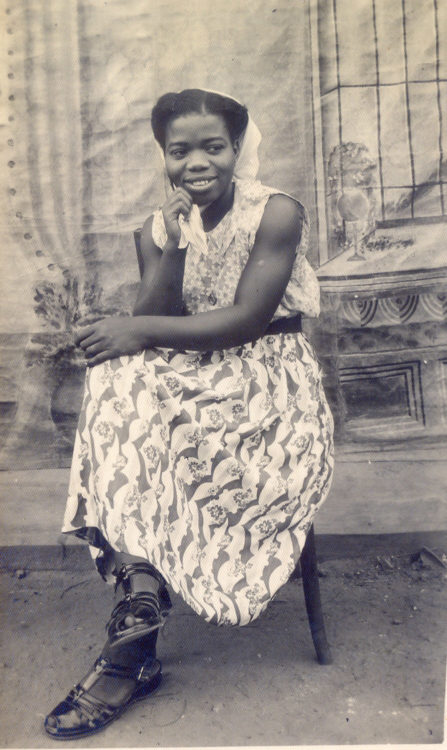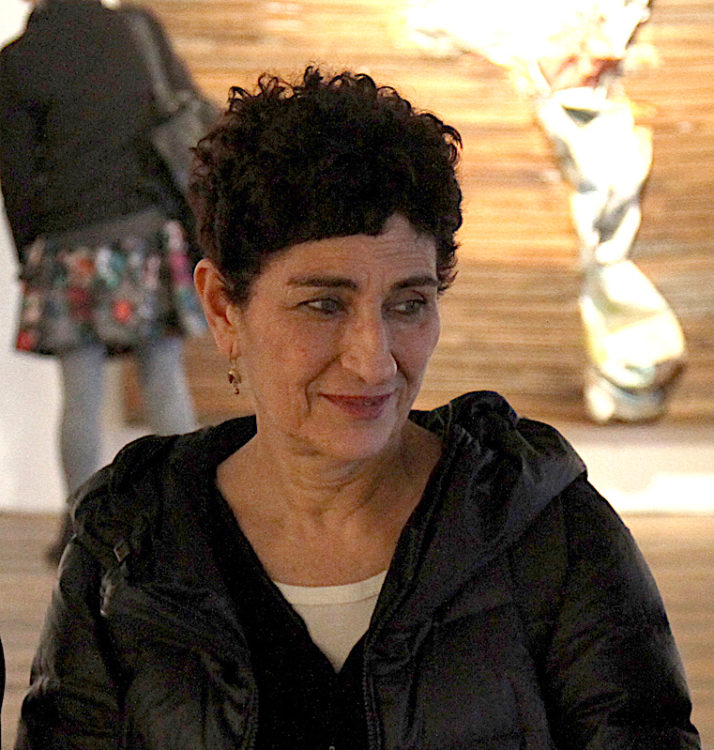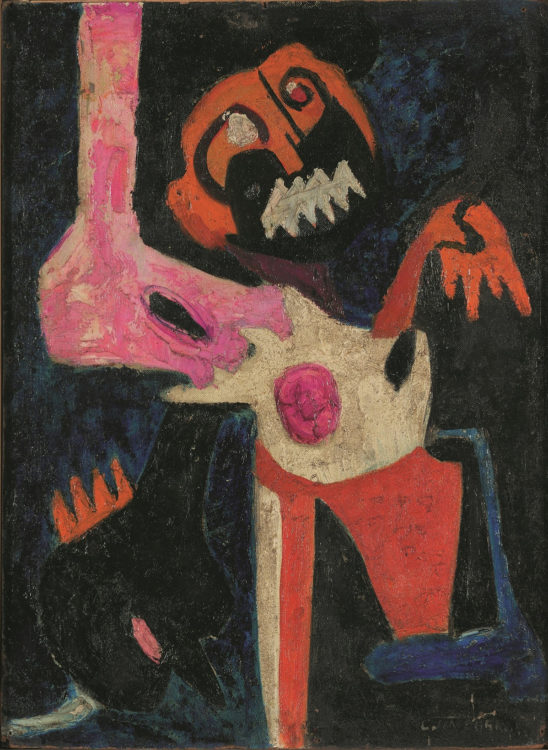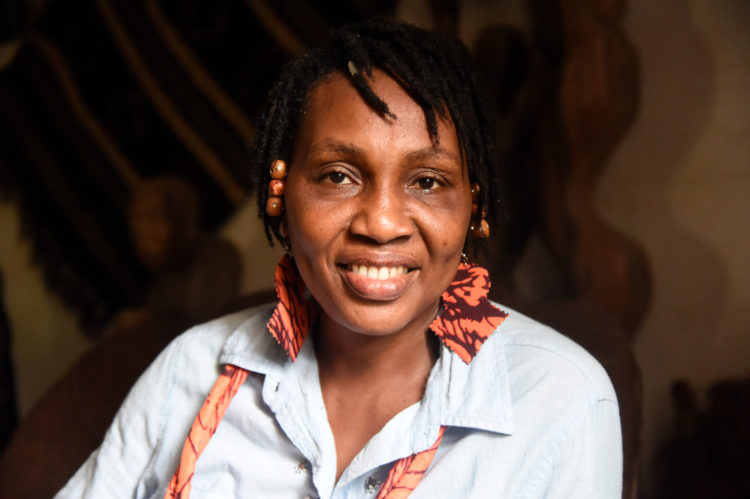Colette Omogbai
Niepodległe: Women, Independence and National Discourse, The Museum pf Modern Art in Warsaw, Warsaw, October 2018- February 2019
→Colette Omogbai, Mbari, Ibadan, 1963
Nigerian painter and art teacher.
Born in what is now Edo State, Southern Nigeria, Colette Omogbai lived her early life in Zaria, northern Nigeria. In 1963, while still a little-known art student of the then Nigerian College of Art Science and Technology (NCAST) in Zaria, she exhibited surrealist paintings at Mbari Club, a cultural hub in Ibadan, western Nigeria, on the invitation of Ulli Beier, the German art mediator and founding member of the Club. It is noteworthy that Omogbai was one of the very few female artists (the others were Susanne Wenger (1915-2009) and Georgina Beier (1938-2021) whose works were promoted by Ulli Beier and featured in exhibitions he curated.
The radical rejection of academic realism profoundly reflected in C. Omogbai’s expressive nonconformist paintings inspired by traditional African sculptural forms, marked an important point in the development of post-colonial modernism in Nigerian art. Her works received initial critical attention from creative elites in Lagos, following another exhibition at the Exhibition Centre, Lagos. In a review by Babatunde Lawal, published in the Nigeria Magazine in 1963, her works were described as lacking a feminine touch. This criticism prompted a response from C. Omogbai in the form of a feminist manifesto published in the 1965 in the same magazine, titled “Man Loves What Is Sweet and Obvious”.
Upon graduation from the NCAST, in 1964 C. Omogbai proceeded to further her art training in London at the Slade School of Fine Art, after which she returned to Benin, southern Nigeria and co-founded the Olokun Gallery with Chief Ovia Idah, where she had another exhibition. In 1976 she obtained a doctorate degree in art education from New York University. She returned to Nigeria in the same year and joined the Nigerian civil service as an art teacher and administrator.
Curiously, beyond her 1963 exhibitions at Ibadan and Lagos and the 1965 Manifesto, very little is known of the artist and her subsequent art practice. One of her paintings, Agony, exhibited in 1963 at Mbari in Ibadan, is currently part of the Iwalewahaus Collection, University of Bayreuth. Only recently in the context of the new interest in the history of modern African art did Agony surface again, raising fresh questions about the identity of its painter. Consequently, the painting has featured in a few important exhibitions: Okwui Enwezor’s Postwar: Art Between the Pacific and the Atlantic, 1945-1965 at Haus der Kunst, in Munich (2016-2017); Women on Aeroplanes at Centre for Contemporary Art in Lagos (2018-2019); and Into the Night: Cabarets and Clubs in Modern Art, Barbican Centre, London (2019-2020).
According to personal testimonies from the artist, the demands of public administration and the decline of her interest in the traditional African art forms that had inspired her practice, contributed to the abrupt end of her studio practice, and subsequent career investments in administration and philanthropy. Colette Omogbai is now retired and currently lives in the United States.
Publication made in the framework of the Season Africa2020.
© Archives of Women Artists, Research and Exhibitions



